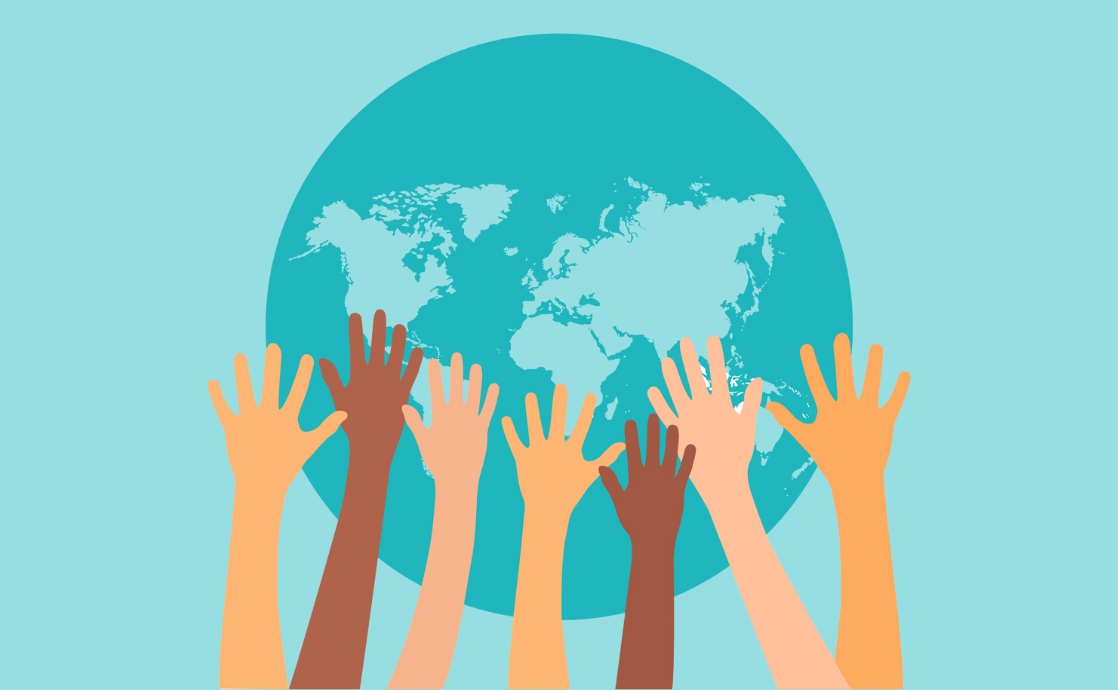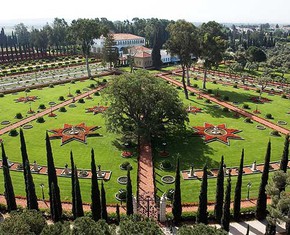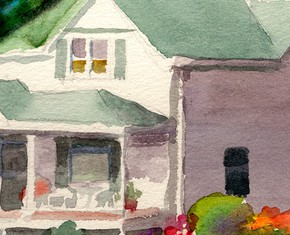The views expressed in our content reflect individual perspectives and do not represent the authoritative views of the Baha'i Faith.
A wonderful word in the Nguni language in southern Africa – Ubuntu – can mean “I am because we are,” showing the interrelationship between the individual and the community.
The renowned African philosopher Motsama Molefe explains two main conceptions of ubuntu: one based around relationships, the other based around self-realization.
Ubuntu, in relational terms, means that a virtuous person is one who connects with others in harmony; whereas the self-realization approach emphasizes the inherent moral worth of a person and his or her ability to be and do good.
These two approaches can be viewed as distinct from each other – but the Baha’i teachings see them as two facets of one unified reality.
RELATED: The Majestic Birth of a United Humanity
This connection between the development of virtues and harmony with others can be found in the Baha’i concept of a “two-fold moral purpose.” Baha’u’llah, the prophet and founder of the Baha’i Faith, wrote:
The Purpose of the one true God, exalted be His glory, in revealing Himself unto men is to lay bare those gems that lie hidden within the mine of their true and inmost selves.
Hence, our central task as spiritual beings in this life is to develop these inner virtues, like the attributes of kindness, love, and generosity. Moreover, our purpose also involves contributing to the betterment of the world through the use of these virtues. Toward this end, Abdu’l-Baha, the son of Baha’u’llah, said, “Think ye at all times of rendering some service to every member of the human race …”
In other words, in order to contribute something of value to the world, we need to develop ourselves.
We need to activate the virtuous qualities that we inherently possess, so that our interactions with others can be positive and produce positive results. At the same time, we cannot live in isolation from others, waiting to perfect ourselves, because we need to interact with others in order to develop many of these positive attributes. So as we see, the self-realization approach and the relational approach are essentially one.
When considering the concept of ubuntu, or our two-fold moral purpose, the self-realization approach shines the spotlight on the individual and his or her capacity for moral good – while the relational approach focuses on interaction with others, emphasizing community and the common good. But essentially, the individual is part of the community. His or her growth is inextricably tied to the community; and the growth of the community is totally dependent on the growth of each individual.
The problem comes when the human mind draws distinctions between things. This probably relates to our tendency to focus on one point at a time, instead of the connections between things.
When we focus solely on individual growth, we may end up striving in isolation for some perfectionistic ideal of what we think we should become. We may even self-sabotage and deceive ourselves into thinking that the things we do for our own personal growth are essential, when in fact they may just be ways to indulge in hedonistic pleasures. On the other hand, when we focus solely on others, we may burn out because we’re not putting enough fuel in our own tank; or we may even become overly controlling of others and tell ourselves that we are “helping” them.
But isn’t helping others good? And isn’t selflessness a virtue? After all, Baha’u’llah says that the highest station is absolute nothingness, when the true spiritual seeker completely forgets his or herself.
RELATED: Love: Emanating from the Divine to Purify Our Hearts
I’ve pondered this conundrum many times, and I’m not sure I’ve come any closer to resolving it. But sometimes, in order to think about others, we need to think about ourselves. We might be rushing to a meeting before having lunch and decide, “Actually, I better stop and have something to eat. I might be a bit late, but I’ll be in a better mood and will be able to contribute more on the meeting.”
If we want the best for others, we need to nourish ourselves physically, mentally, emotionally, and spiritually so that we can best contribute to the world. Of course, we also need to be honest with ourselves. A bit of time watching Netflix might be just what I need to unwind, but I also have to draw a line so that my self-nourishment doesn’t turn into self-indulgence. How much time is too much? We all need to answer that for ourselves, because our individual needs are different.
But what seems most important to remember is that while we will always remain individuals, our life’s purpose is tied to others – reflecting the core concept of ubuntu. Our task in life is to improve ourselves and the world. That is our one purpose.
















Comments
Sign in or create an account
Continue with Googleor